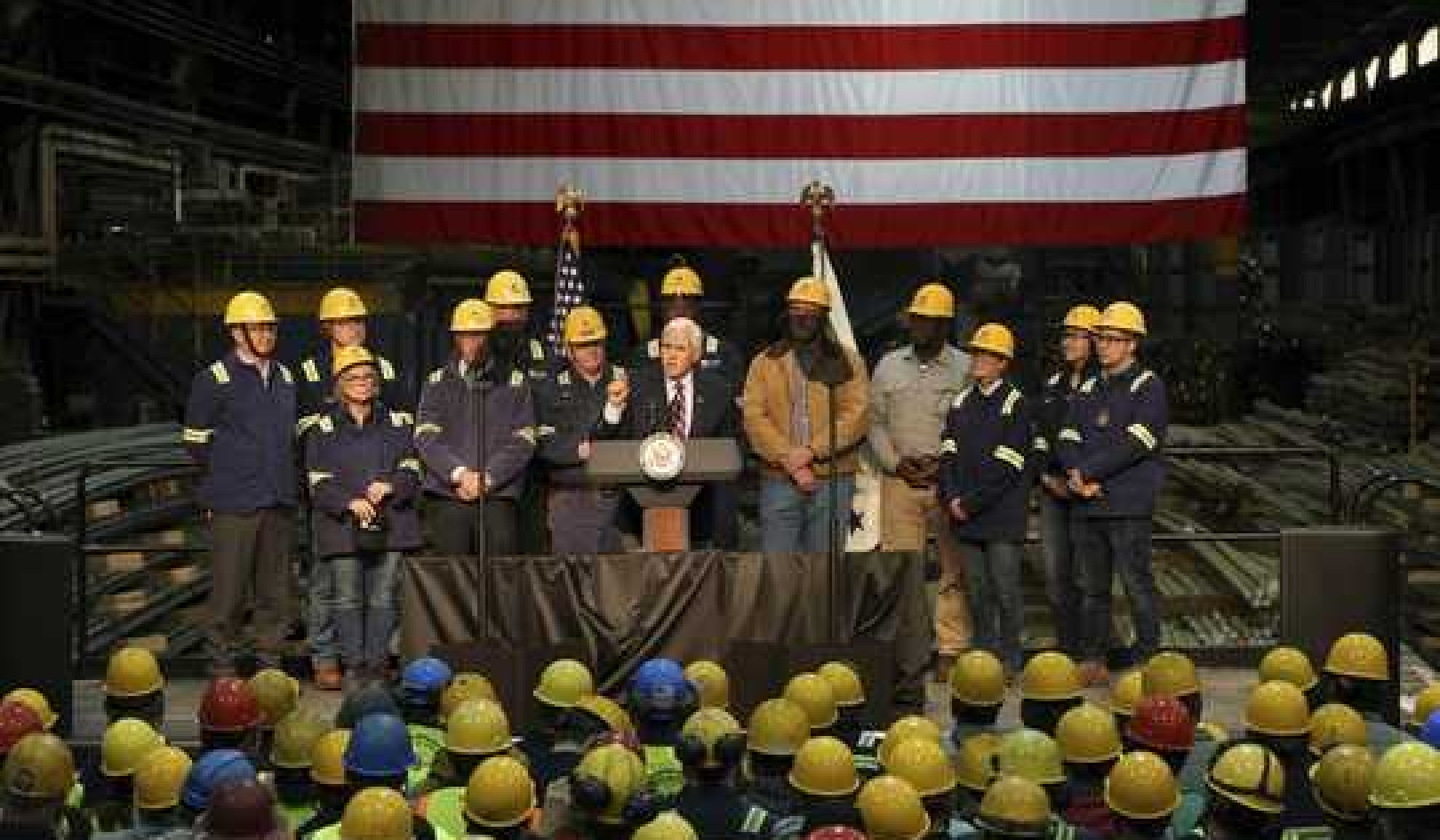
Every so often a generation is given a label. The most well-known generation is the baby boomers, men and women born between 1946 and 1964, of which I am one. They are the children of those who sacrificed greatly and fought a world war to defeat fascism. Before them came the depression children, who struggled to eke out a living amid an economic dark age, and after the baby boomers came Generation X.
More recently, those born from the early 1980s through the year 2000 have been labeled the millennial generation, or generation Y. These young people, currently between the ages of thirteen and thirty-three, are our future, and there are a lot of them. Fifty million of them are eighteen years of age or older, and in less than ten years, seventy million more will join their ranks as adults.
Priorities of the Millennials Are Unlike Any Previous Generations
This generation is unlike any previous generation. Their top three priorities are being a good parent, having a successful marriage, and helping others in need. Owning a home and living a religious life are fourth and fifth, respectively. Only then is a high-paying career important, their sixth priority.
Today’s youth are so civic minded that some social commentators have dubbed them the “civic generation.” For them, it seems the American Dream has taken on a whole new meaning: it’s all about the people. “Community service is part of their DNA. It’s part of this generation to care about something larger than themselves,” according to CEO Michael Brown of City Year, a nonprofit organization dedicated to keeping students in school and on track to graduate.
On September 17, 2011, the millennials, as they have been dubbed by the press, began occupying Wall Street to demonstrate their dissatisfaction with the state of U.S. politico-economic affairs. Within a few weeks the demonstrations grew to thousands and spread to twenty-five cities across the United States. Within a month like-minded people across the world showed their support by staging their own “occupy” demonstrations, from Chicago to Los Angeles, and from London to Hong Kong. By the end of October 2011, the movement had spread to nearly one thousand cities across the world.
Fighting Back by Occupying, Exposing, and Seeking a Better Way
Their purpose is to fight back “against the corrosive power major banks and unaccountable multinational corporations wield against democracy, and the role of Wall Street in creating the economic collapse that has caused the greatest recession in nearly a century.” They aim to “expose how the richest 1% of people are writing the rules of a dangerous neoliberal economic agenda that is stealing our future.”
According to Mark Bray, a media spokesman for Occupy Wall Street,
“Fundamentally what we are looking for is economic justice. We want to create a society where the needs of the vast majority of people are prioritized over the profits of a small number of corporations which have an undue influence on the organization of our society. Moreover, we are looking for a more democratic structure, a way that the people can hold those officials that make these decisions accountable.”
Occupy Wall Street wants to end the tyranny of the 1 percent of people who have the greatest influence upon the political and financial system of the United States. They are against corrupt banking systems, war, and foreclosure. Occupy Wall Street, simply, demands economic justice for the 99 percent of the people who have little or no influence on the corporate and governmental forces that shape society. These demands are simple, but at the same time deeply complex.
Economic Justice is the Goal
“Economic justice” sounds like Marxist rhetoric, which prompted television personalities such as Bill O’Reilly of Fox News to refer to the protesters as an “amalgamation of anti-capitalist people, anti-American people.” Conservative radio showman Rush Limbaugh believes that the Obama administration concocted Occupy Wall Street to target Republican presidential hopeful Mitt Romney.
On a more sinister note, conservative talk show host Glenn Beck warns that Occupy Wall Street is a Marxist revolution that is global in nature. Conservative political commentator Charlie Wolf agrees, stating that the Occupy Wall Street movement is being controlled by “by a bunch of people who have nefarious means and desires on wanting to change the constitution of the United States.” They want to turn the United States into “some sort of communist or socialist-Marxist entity.”
If the Occupy Movement is indeed a Marxist revolution, why would 43 percent of those polled by CBS News agree with the protestors’ so-called anticapitalist views? More important, why would the youth of America, and the world, start a Marxist revolution when it is common knowledge that communism is a failed governmental ideology, that its application in the real world is impractical, particularly now since China has entered the global economy as a capitalist force?
What the Millennial Generation Understands
 The millennial generation appears to understand that something is wrong with the political and economic forces at the foundation of society, that the United States has become more a republic of the corporations as opposed to a republic of the people. Government is a necessity, and a government that ensures the rights and freedoms of its people will always be successful. Still, any government can be corrupted by people who care more about power and control than the general welfare of the citizens.
The millennial generation appears to understand that something is wrong with the political and economic forces at the foundation of society, that the United States has become more a republic of the corporations as opposed to a republic of the people. Government is a necessity, and a government that ensures the rights and freedoms of its people will always be successful. Still, any government can be corrupted by people who care more about power and control than the general welfare of the citizens.
Consequently, I find it ironic that in an interview with Al Jazeera’s Mike Hanna, conservative political commentator Charlie Wolf suggested that “what they all [the Occupy Wall Street demonstrators] need right now is for some rich millionaire or billionaire that they despise to buy a couple hundred thousand copies of Animal Farm and to hand them out to the protesters and let them have a good read.”
Animal Farm is a satire on the ills of Stalinist communism, and it is understandable why Wolf would suggest such a book. However, what Wolf might not know is that after writing Animal Farm, George Orwell immediately wrote 1984, a chilling and disturbing exposé on the social, economic, and political truths hidden behind the rule and rhetoric of the modern industrial state and its socialistic style of government, a book published in 1949 that to this day, more than sixty years later, still ranks as a bestselling book.
1984 and 2012: Different or the Same?
When I first read 1984 I was a high school student and lacked life’s experience to understand the depth of Orwell’s story. At that time, 1984 was little more than dark science fiction of a technology-controlled society. After reading it again, however, more than thirty years later, Orwell’s literary genius was apparent.
Underneath the seemingly unrealistic Two Minute Hate, Big Brother, Newspeak, O’Brien’s cruelty, and the mysterious figure of Emmanuel Goldstein lay the modus operandi of the institutionalized social powers that have existed for thousands of years. Although their names change from century to century, and their empires are replaced by more powerful empires, the pattern of ideological control always reasserts itself, even after revolution in the name of liberty.
In 1984, Orwell was commenting on the sociopolitical and economic truth that lies at the base of human civilization. He did so in an exaggerated fashion to make his point. The slogans for INGSOC—War Is Peace, Freedom Is Slavery, and Ignorance Is Strength—are in fact the underlying principles for the modern social democratic state. These three principles of social organization and government control exist but not in the extreme way described by Orwell. They are subtle and buried deep within a self-perpetuating system that marries war-?oriented nationalism to a network of powerful corporations, a system that is masked from the public by corporate media
Why Is Society & The World "The Way It Is?"
After thirty years of experiencing corporate life in the commercial real estate industry and the banking industry, as a software consultant for McDonnell Douglas, and as an employee for a state agency, I began to question why society “is the way it is,” and the world too. People, in general, seem to be unhappy with their jobs while at the same time grateful that they have a job.
In order to make ends meet, some people today work two or three jobs. Now, our youth are demonstrating “against the system.” Not just in the United States, but around the world. With these demonstrations, which have attracted considerable media attention, I am reminded of the protests and demonstrations against the Vietnam War, but without a war.
Why?
The short answer is joblessness, along with a sense that the country’s political and economic affairs are tilted in favor of big business. The long answer, however, runs deep into history before the dawn of our civilization into the murky past, an answer that ties all aspects of human society into an inseparable twine of economics, government, and religion.
It's the Economy...
Society and civilization—domestic and international—regardless of the time period or age of humanity are all about economics in a very fundamental way. Economics is a systematic, almost mathematical, approach to using natural resources to live life. All the different economic theories are a fine-tuning of the system that Adam Smith described in classical economics. There are land, labor, and capital. Stated more fairly, there are resources, people, and ownership.
Today, the general concept of economics is very simple. Large corporate enterprises own vast resources and create products that ordinary people must purchase in order to live, while at the same time providing the labor for those enterprises to turn resources into products.
The Stakes are High
In a sense, the relationship between labor and capital is a card game, a very important card game with very high stakes. Too many unhappy people, as history demonstrates, leads to revolution if an equitable, nonviolent solution between the parties cannot be found. This is why capitalists display such a dislike for Marxists and Marxist ideas. They’ve observed that where communist experiments have succeeded, business owners lost everything.
In the United States, there are 5,767,306 firms, 7,433,465 establishments, and 313,098,826 people. You might think that if there are so many workers compared to owners, a ratio of more than 50 to 1, then why don’t workers have more say in the state of economic affairs. Although there are a number of reasons, the primary reason is beliefs.
©2014 by Edward F. Malkowski. All Rights Reserved.
Reprinted with permission of Inner Traditions, Inc.
www.innertraditions.com
This article was excerpted from the book:
Return of the Golden Age: Ancient History and the Key to Our Collective Future
by Edward F. Malkowski.
 Since the beginning of recorded history humanity has been in a continuous struggle over land and resources. It continues today despite the abundance we have created through scientific innovation and technology. Why such a struggle for resources exists has never been explained. Neither has the human drive to own, accumulate, and hoard. Edward Malkowski reveals that the answer lies in recognizing the reality behind humanity’s earliest myths. He shows that the opportunity is at hand to transcend these inherited selfish traits and return to a Golden Age of peace and abundance.
Since the beginning of recorded history humanity has been in a continuous struggle over land and resources. It continues today despite the abundance we have created through scientific innovation and technology. Why such a struggle for resources exists has never been explained. Neither has the human drive to own, accumulate, and hoard. Edward Malkowski reveals that the answer lies in recognizing the reality behind humanity’s earliest myths. He shows that the opportunity is at hand to transcend these inherited selfish traits and return to a Golden Age of peace and abundance.
Click here for more info and/or to order this book on Amazon.
About the Author
 Edward F. Malkowski has a lifelong interest in history, particularly ancient history with a special interest in philosophy and the development of religious beliefs from ancient to modern times. He is the author of Sons of God: Daughters of Men, Before The Pharaohs, and The Spiritual Technology of Ancient Egypt. His professional background is finance and business administration, and he is also a software developer with interests in business strategy and philosophy as it relates to the advancement of technology.
Edward F. Malkowski has a lifelong interest in history, particularly ancient history with a special interest in philosophy and the development of religious beliefs from ancient to modern times. He is the author of Sons of God: Daughters of Men, Before The Pharaohs, and The Spiritual Technology of Ancient Egypt. His professional background is finance and business administration, and he is also a software developer with interests in business strategy and philosophy as it relates to the advancement of technology.

























